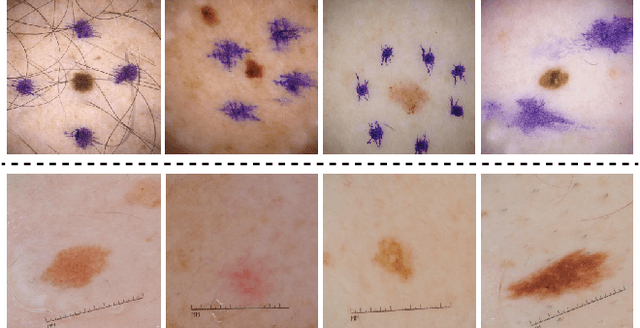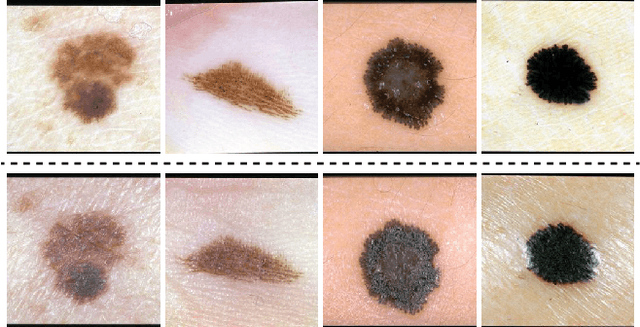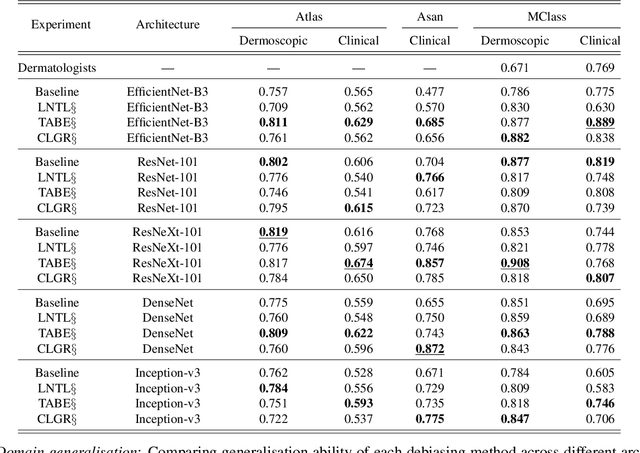Skin Deep Unlearning: Artefact and Instrument Debiasing in the Context of Melanoma Classification
Paper and Code
Sep 23, 2021



Convolutional Neural Networks have demonstrated dermatologist-level performance in the classification of melanoma and other skin lesions, but prediction irregularities due to biases seen within the training data are an issue that should be addressed before widespread deployment is possible. In this work, we robustly remove bias and spurious variation from an automated melanoma classification pipeline using two leading bias unlearning techniques. We show that the biases introduced by surgical markings and rulers presented in previous studies can be reasonably mitigated using these bias removal methods. We also demonstrate the generalisation benefits of unlearning spurious variation relating to the imaging instrument used to capture lesion images. Contributions of this work include the application of different debiasing techniques for artefact bias removal and the concept of instrument bias unlearning for domain generalisation in melanoma detection. Our experimental results provide evidence that the effects of each of the aforementioned biases are notably reduced, with different debiasing techniques excelling at different tasks.
 Add to Chrome
Add to Chrome Add to Firefox
Add to Firefox Add to Edge
Add to Edge